#d.t. Suzuki
Text
In this spiritual world there are no time divisions such as the past, present and future; for they have contracted themselves into a single moment of the present where life quivers in its true sense . . . The past and the future are both rolled up in this present moment of illumination, and this present moment is not something standing still with all its contents, for it ceaselessly moves on.
D.T. Suzuki, On Indian Mahayana Buddhism
201 notes
·
View notes
Text
Life, according to Zen, should be lived as a bird flies through the air, or as a fish swims in water.
D. T. Suzuki
3 notes
·
View notes
Quote
One of the most significant features we notice in the practice of archery, and in fact of all the arts as they are studied in Japan and probably also in other Far Eastern countries, is that they are not intended for utilitarian purposes only or for purely aesthetic enjoyments, but are meant to train the mind; indeed, to bring it into contact with the ultimate reality.
D.T. Suzuki
12 notes
·
View notes
Text

"Love makes the ego lose itself in the object it loves, and yet at the same time it wants to have the object as its own… The greatest bulk of literature ever produced in this world is but the harping on the same string of love, and we never seem to grow weary of it. But… through the awakening of love we get a glimpse into the infinity of things… When the ego-shell is broken and the ‘other’ is taken into its own body, we can say that the ego has denied itself or that the ego has taken its first steps towards the infinite."
--D.T. Suzuki
1 note
·
View note
Text

1 note
·
View note
Text
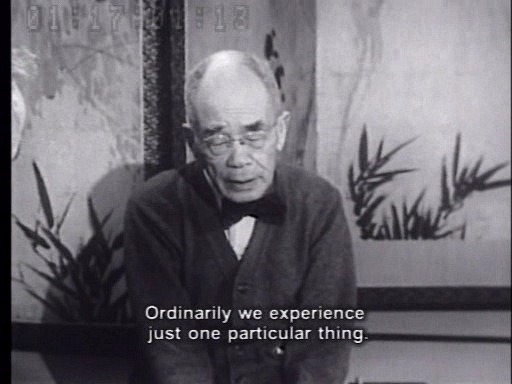
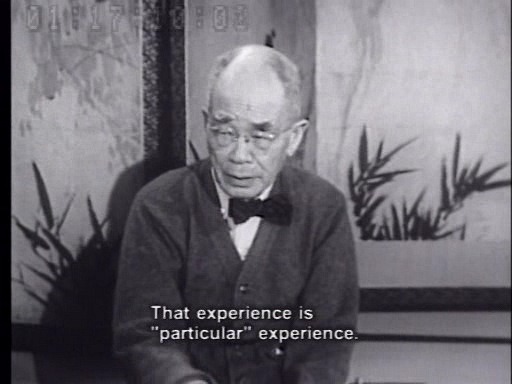




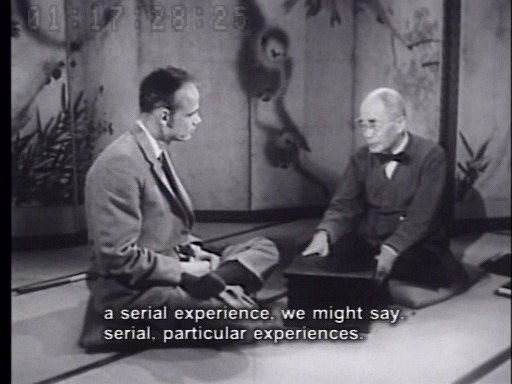
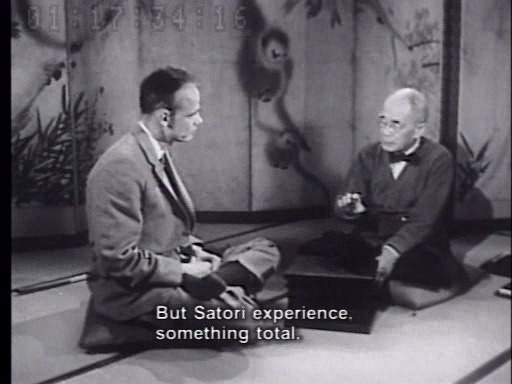
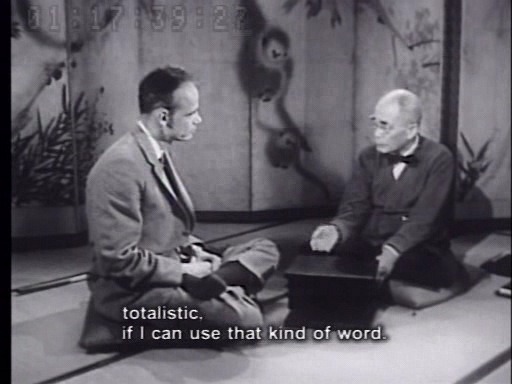
#A Zen Life: D.T. Suzuki#satori#zen#zen buddhism#buddhism#Daisetsu Teitaro Suzuki#D. T. Suzuki#japan#2006#Michael Goldberg
8 notes
·
View notes
Photo

D.T. Suzuki Museum, Kanazawa
0 notes
Text

[Image above: D. T. Suzuki (11 November 1870 - 12 July 1966) was a Japanese Buddhist scholar and doctor of literature. ]
A message from 23 nights temple Q&A: Part 2 [Part 1]
Next question was, want to know more about Tendai Buddhism and how to do face-to-face learning outside of Japan:
More than 1,400 years after its introduction, Buddhism in Japan was born from the founders of sects in Japanese history and culture. Today, about 13 major sects exist, including the Tendai sect. Of these, three are Zen sects: the Soto, Rinzai and Obaku.
Among them the most representative are, Saicho, founder of the Tendai sect, whose head temple is Enryaku-ji on Mt. Hiei; Kukai, founder of the Shingon sect, who brought esoteric Buddhism to Japan, whose head temple is Kongobu-ji on Mt. Koya; and Dogen, author of the Shobogenzo, a philosophy book said to be a manual for Zen meditation practice and originator of mindfulness. Founder of the Soto sect, whose main temple is Eiheiji Temple.
Buddhism means 'Buddha's teachings'. In the beginning, everything was transmitted orally and it was only after Buddha's death that documents and scriptures were created. All of the Buddhist scriptures that remain today were described by the memory of Buddha's disciples. In the meantime, it underwent various transformations through the views of translators and other factors, and representative gurus from different countries established and divided into sects. The Tendai sect is one of these sects, founded by Master Saicho. Incidentally, my trusted teacher is a Zen monk of the Soto sect, and he says that one should not be confined to a sect. It is because Dogen, the founder of the Soto sect, taught that the Buddha's teaching is one and that we should not be obsessed with sects.
Those wishing to study face-to-face or Buddhist thought outside Japan should visit your local Buddhist temple or Zen centre. You can easily find one by hitting the usual keywords. However, not all are good teachers. It is recommended to search patiently for a teacher or centre that suits you. For international learners, books by Japanese Buddhist scholar D.T. Suzuki are relatively accessible. He wrote on Zen in English and introduced Japanese Zen culture to the rest of the world. He was also a prolific translator of Chinese, Korean, Japanese, Vietnamese and Sanskrit literature.
In fact, the teachings of Zen that we are learning are not like there is a holy scripture that says this is the absolute truth, nor is there a founder who says that this is the absolute truth.
And it is best not to decide on a teacher based on sect or culture, but to knock on the door of a person you can identify with. More importantly, he or she may not only be in the temple.

二十三夜堂からのメッセージ Q&A: その2 [その1]
次の質問は、天台宗についてもっと知りたい、日本国外で対面で学ぶ方法を知りたいというものでした:
伝来から1400年余りの年月を経て、日本の歴史文化のなかで、宗派の開祖たちから生まれたのが「日本の仏教」。 現在、大きな宗派として存在しているのは、天台宗を含め約13宗派。その中で禅宗は、曹洞宗、臨済宗と黄檗宗の3宗。
中でも代表的なのは、天台宗の開祖の最澄、総本山は比叡山延暦寺、日本に密教をもたらした、真言宗の開祖の空海、総本山は高野山金剛峯寺、そして、坐禅修行のマニュアルとも言われている哲学書「正法眼蔵 (しょうぼうげんぞう)」の著者でマインドフルネスの元祖、曹洞宗の開祖の道元、大本山は永平寺など、が挙げられる。
仏教とは「ブッダの教え」という意味である。当初、全ては口頭で伝えられており文書·経典ができたのはブッダ没後のことだ。今日残っている仏教経典はすべて、ブッダの弟子たちの記憶によって記述されたもの。その間訳者の見解などを通して様々な変形を繰り返し、各国の代表的な教祖が宗派を立ち上げ分かれていった。天台宗はその一つで、最澄が立ち上げた宗派である。因みに私の信頼できる先生は曹洞宗の禅僧だが、彼は宗派に囚われるべきではないと言っている。というのも曹洞宗の開祖である道元禅師が「ブッダの教えは一つであり、宗派に執われるな」と教えていたからだ。
国外で対面学習や仏教思想を学びたいとご希望の方々は、ローカルの仏教寺院、または禅センターを訪ねてみると良いと思います。お決まりのキーワードを叩けば、すぐに見つかります。但し、全てが良い先生とは限りません。自分に合った先生やセンターを根気よく探すことをお勧めします。海外の方々は、日本の仏教学者、鈴木大拙氏の本が比較的手に入りやすいと思います。彼は英語で禅に関する著作を発表し、日本の禅文化を世界に紹介し、また中国語、韓国語、日本語、ベトナム語、サンスクリット語などの多作な翻訳者でした。
実際、私たちが学んでいる「禅」の教えは、これが絶対の真理だという聖典があるわけでも、これが絶対の真理だという教祖がいるわけでもありません。
宗派や文化で師を決めるのではなく、ご自分が共感できる門を叩くのが最良かと思います。もっと言えば、その人はお寺にのみいらっしゃるとも限りません。
72 notes
·
View notes
Text

“We have two eyes to see two sides of things, but there must be a third eye which will see everything at the same time and yet not see anything. That is to understand Zen.”
— D.T. Suzuki
Zen Buddha
Talon Abraxas
37 notes
·
View notes
Quote
In this spiritual world there are no time divisions such as the past, present and future; for they have contracted themselves into a single moment of the present where life quivers in its true sense...The past and the future are both rolled up in this present moment of illumination, and this present moment is not something standing still with all its contents, for it ceaselessly moves on.
D.T. Suzuki
280 notes
·
View notes
Text
We have two eyes to see two sides of things, but there must be a third eye which will see everything at the same time and yet not see anything. That is to understand Zen.
— D. T. Suzuki
1 note
·
View note
Text

“The idea of Zen is to catch life as it flows. There is nothing extraordinary or mysterious about Zen. I raise my hand; I take a book from the other side of the desk; I hear the boys playing ball outside my window; I see the clouds blown away beyond the neighboring wood — in all these I am practicing Zen, I am living Zen. No wordy discussion is necessary, nor any explanation… When the sun rises the whole world dances with joy and everybody’s heart is filled with bliss. If Zen is at all conceivable, it must be taken hold of here.”
D.T. Suzuki
69 notes
·
View notes
Text
All the causes, all the conditions of satori are in the mind; they are merely waiting for the maturing. When the mind is ready for some reasons or others, a bird flies, or a bell rings, and you at once return to your original home; that is, you discover your now real self. From the very beginning nothing has been kept from you, all that you wished to see has been there all the time before you, it was only yourself that closed the eye to the fact. Therefore, there is in zen nothing to explain, nothing to teach, that will add to your knowledge. Unless it grows out of yourself no knowledge is really yours, it is only a borrowed plumage.
An Introduction to Zen Buddhism
D.T. Suzuki
35 notes
·
View notes
Text
Man is a thinking reed but his great works are done when he is not calculating and thinking. "Childlikeness" has to be restored with long years of training in the art of self-forgetfulness.
When this is attained, man thinks yet he does not think. He thinks like the showers coming down from the sky; he thinks like the waves rolling on the ocean; he thinks like the stars illuminating the nightly heavens; he thinks like the green foliage shooting forth in the relaxing spring breeze.
Indeed, he is the showers, the ocean, the stars, the foliage.
D.T. Suzuki

24 notes
·
View notes




